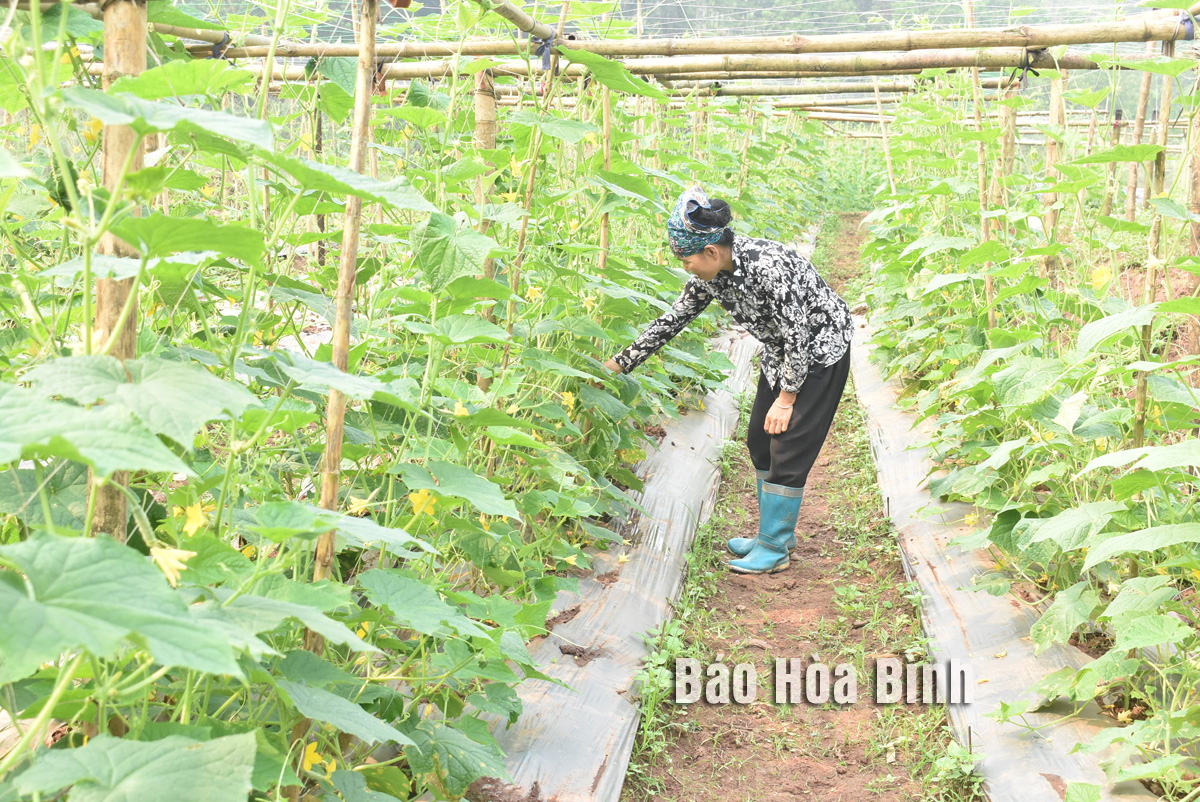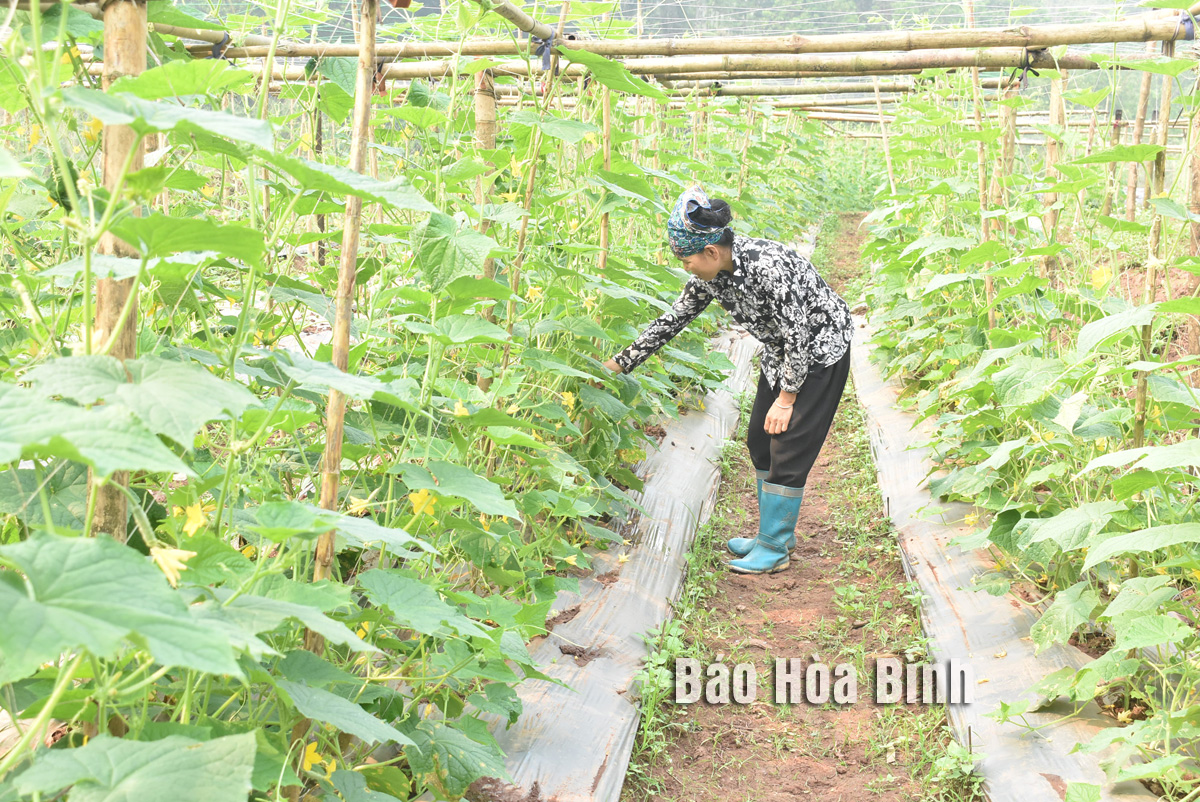
With an allocation of 44 billion VND (1.72 million USD) under the national target programme on socio-economic development in the ethnic minority-inhabited and mountainous areas for the 2021-2025 period, Hoa Binh city has invested in the target areas, creating many changes in the living conditions of local ethnic minority communities.
The safe vegetable cultivation model in
Doc Loc commune has created stable jobs for local ethnic minority residents.
The investment portfolio has catalysed
significant infrastructure improvements, with such projects as water systems in
Song and Mui hamlets of Doc Lap commune, housing support for impoverished
families, rural transportation development, and wet market repair.
Besides, the money has been used to support the
development of free-range chicken farming, safe vegetable production, and
upgrade of warehouses and vocational training facilities.
Three years into implementation, the programme
has demonstrated tangible impacts, boosting socio-economic development and
improving local material and spiritual lives. The poverty rate among
ethnic minority communities has reduced by 1.74% annually, while average annual
income has climbed to 63 million VND per person by the end of 2024. Besides,
infrastructure development has achieved remarkable milestones, with 100% of
communes having concretised roads and all ethnic minority residents accessing
electricity and clean water.
Along with relocating ethnic minority households
in areas prone to flash floods and landslides, the city has paid due attention
to doing away with temporary and dilapidated houses for poor ethnic minority
communities and households.
Furthermore, it has maintained universal
preschool education for five-year-olds and a 98% health insurance coverage rate
among ethnic minority populations.
According to deputy head of the city’s board for
ethnic affairs Nguyen Xuan Thang, the national target programme has delivered
benefits to ethnic minority communities, modernising rural infrastructure and
expanding successful production models. It has contributed greatly to improving
living conditions as well as ensuring social order and safety in ethnic
minority regions.
The emulation movement "Hoa Binh joining hands to build new-style rural areas” has been widely spreading, becoming a driving force that motivates the localities to renew rural landscapes and improve the material and spiritual lives of the residents. In this movement, the people play a central role-both as the main implementers and direct beneficiaries of its outcomes.
In response to the global digital revolution, Hoa Binh Newspaper is transforming itself into a modern and multi-platform media hub, blending cutting-edge technology with a restructured newsroom and a new generation of tech-savvy journalists.
Hoa Binh province’s Association of the Elderly recently held a conference to review the project on expanding the inter-generation self-help club model until 2025.
In a move to implement Resolution No. 57-NQ/TW, issued on December 22, 2024 by the Politburo, which targets breakthroughs in science-technology development, innovation, and digital transformation, the Hoa Binh provincial Department of Health has issued a plan to roll out the "Digital Literacy for All” campaign within the local health sector.
An Nghia Commune (Lạc Sơn District) is one of the communes that achieved the tha standard of the national new rural area in 2018. Entering a new development phase, the commune is now trying to meet the criteria for the advanced new rural development. With the strong political will and the public consensus, the commune is gradually overcoming the challenges to reach this goal, aiming for the sustainable development.



